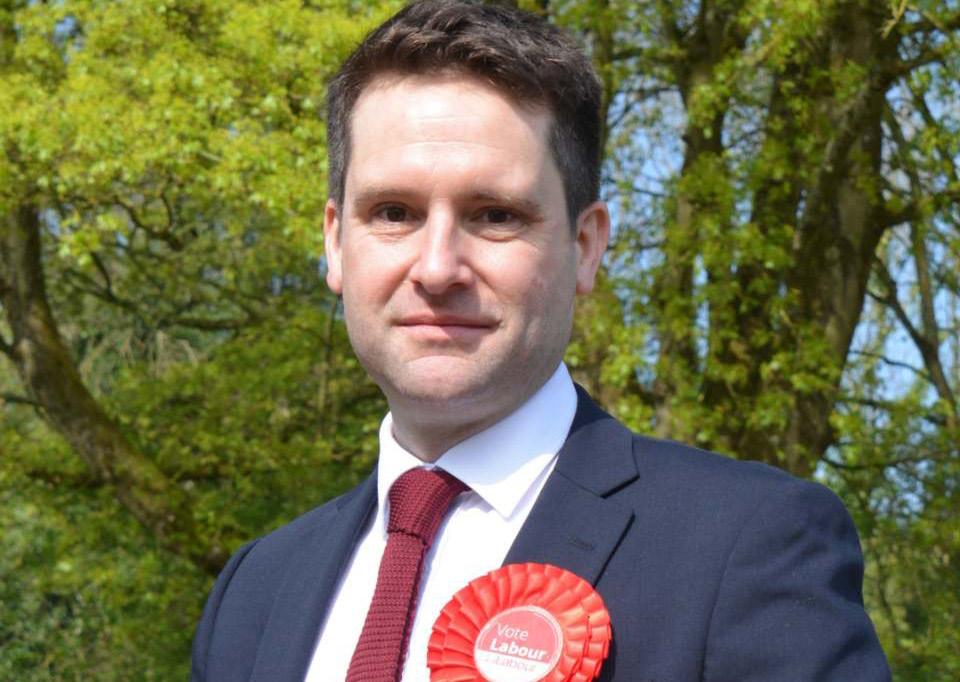
3 minute read
16 Tales from the Vale | Andy Palmer
How a 19thC ‘relic’ allowed partygate to happen
Our current ‘unwritten constitution’ is unfit for purpose and ripe for abuse, argues Labour’s Pat Osborne
“Partygate” continues to dominate the news, while the Tory’s plan to address the cost of living crisis is still nowhere to be seen. In fact, Sunak and Johnson seem content to announce confirmation of National Insurance increases from April. This will undoubtedly make a bad situation worse for people in North Dorset who are already paying more at the pump, paying more in the shops, and feeling less in their back pockets after a week at work. With Sunak’s previous £20 a week cut to Universal Credit having already pushed some 200,000 of the most vulnerable people into poverty, and energy bills set to climb 70% in just over a year, we’re all going to find it increasingly difficult to get by without the Government stepping in. Whilst Sunak sharpens his dagger for an inevitable leadership bid, the business of running the country for the benefit of the people takes a back seat. So, it’s important that we don’t lose sight of why this is happening. Partygate is happening because we are among a tiny minority of countries in the World that don’t have a written constitution. Until we do, checks and balances like the Ministerial Code will always be open to abuse by those in power. While the national press focuses on Colin the Caterpillar’s trip to Downing Street, the power of the Government is increasing with every Bill, the authority of the Courts and our human rights are being eroded, our rights to citizenship, to protest and to vote are all being swept away. The most recent example being so called ‘Brexit Freedom Bills’ which seek to give ministers the power to make law without Parliamentary scrutiny. With the exception of a few notable changes made by the last Labour Government, our current ‘unwritten Constitution’ is largely a relic of the 19th Century. It’s ripe for abuse and no longer fit for purpose. It’s high time that we renewed our expectations of those who seek to serve us and hardwired them into a written constitution that genuinely holds the public as sovereign.
Cllr Pat Osborne Labour’s former Parliamentary Candidate for North Dorset
The challenges of leadership
When Prime Minister Harold Macmillan was asked what was the greatest challenge for a statesman, he replied: ‘Events, dear boy, events’. North Dorset chair of the Liberal Democrats Mike Chapman reflects on the impact of leadership styles.
My school cricket team contained two future England caps. Did we lose? No, not ever. Did we feel good about that? Yes. Did the rest of the team improve with such talented teammates? No, we fell by the wayside. Years roll by, and a new leader joins my business team. He has one strong message: double the output, double the profit or say goodbye. He lasted just long enough to sow the seeds of destruction for the whole enterprise, his youth and boldness clashing against the wall of the older and more experienced. There are other leader types, too: “There go the people, I must follow them, for I am their leader” is the classic stance of the politician. There are four people presenting themselves in England today as our leaders: he who seems to self-serve; he who has served well in another career; he who pushes for fairness and opportunity. Then there is Nigel. What sort of leader do we need, then? Boris, the chaotic in charge of the chaos? Keir the not-quitecharismatic, always looking back over his left shoulder? Ed, someone tapped into the thinking, practical heart of our nation? And no, not Nigel under any circumstances. That phrase from a bygone age will help nudge us along the path to a decision: “Events, dear boy, Events.” How apt that a party should be an Event.











